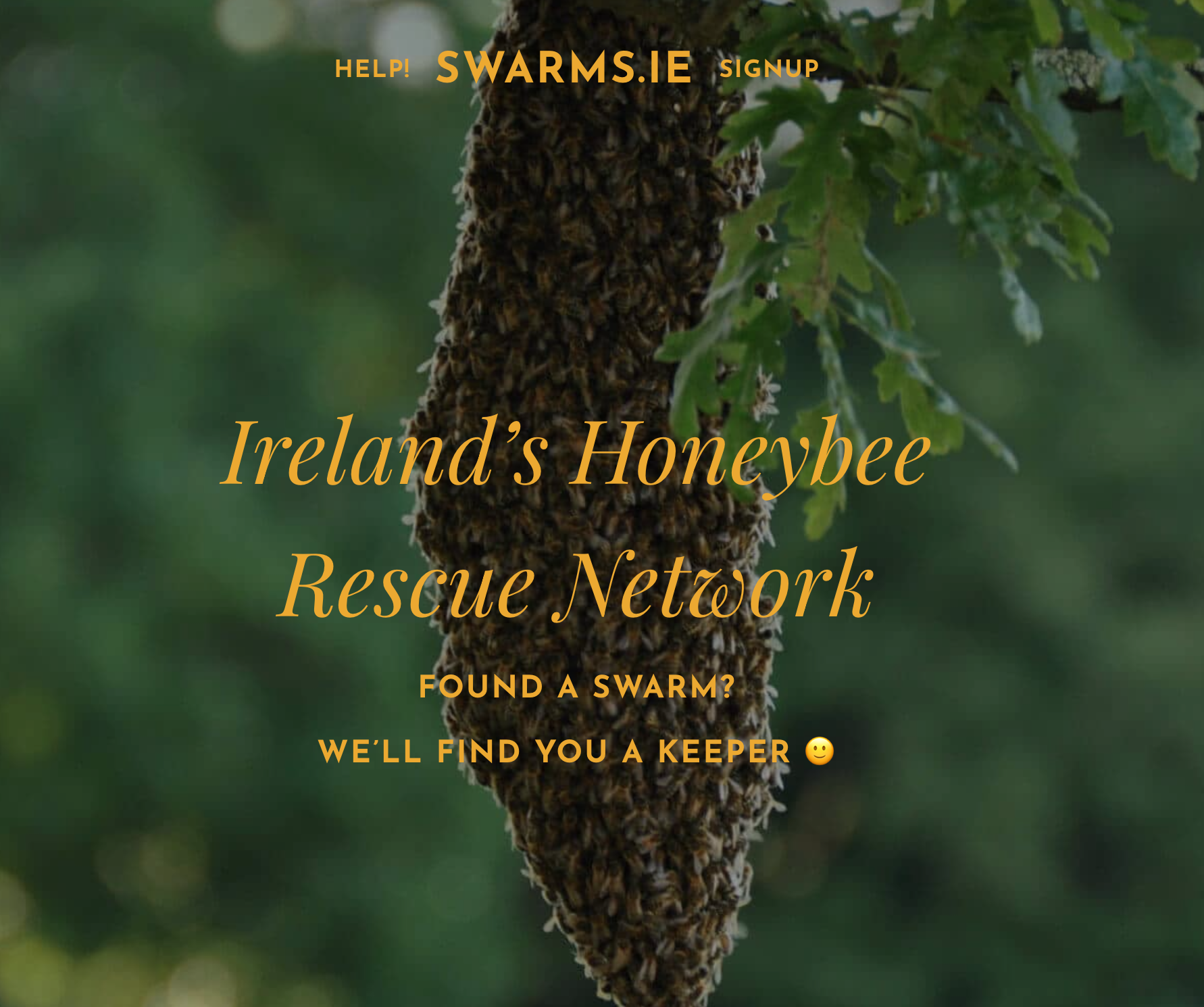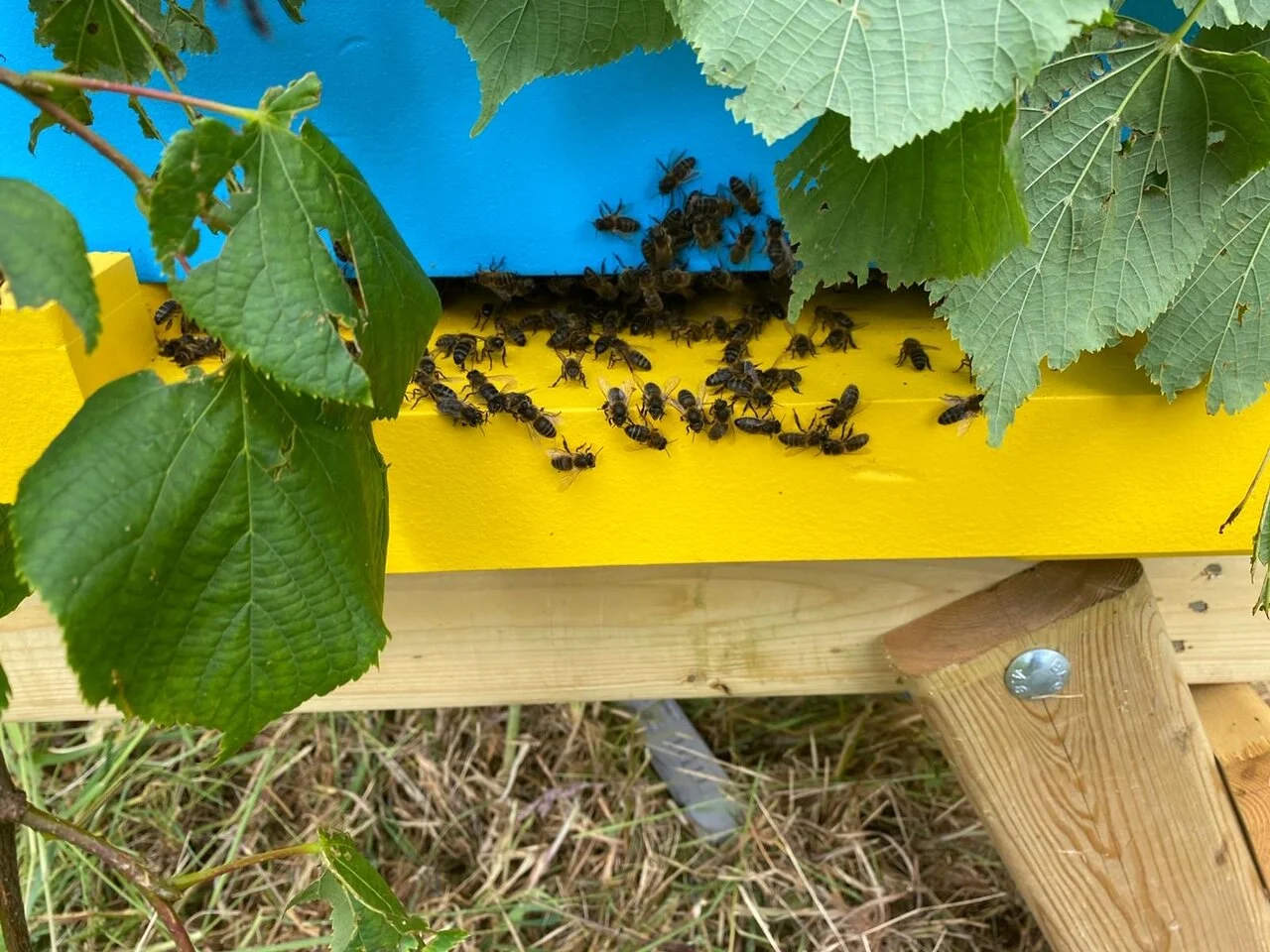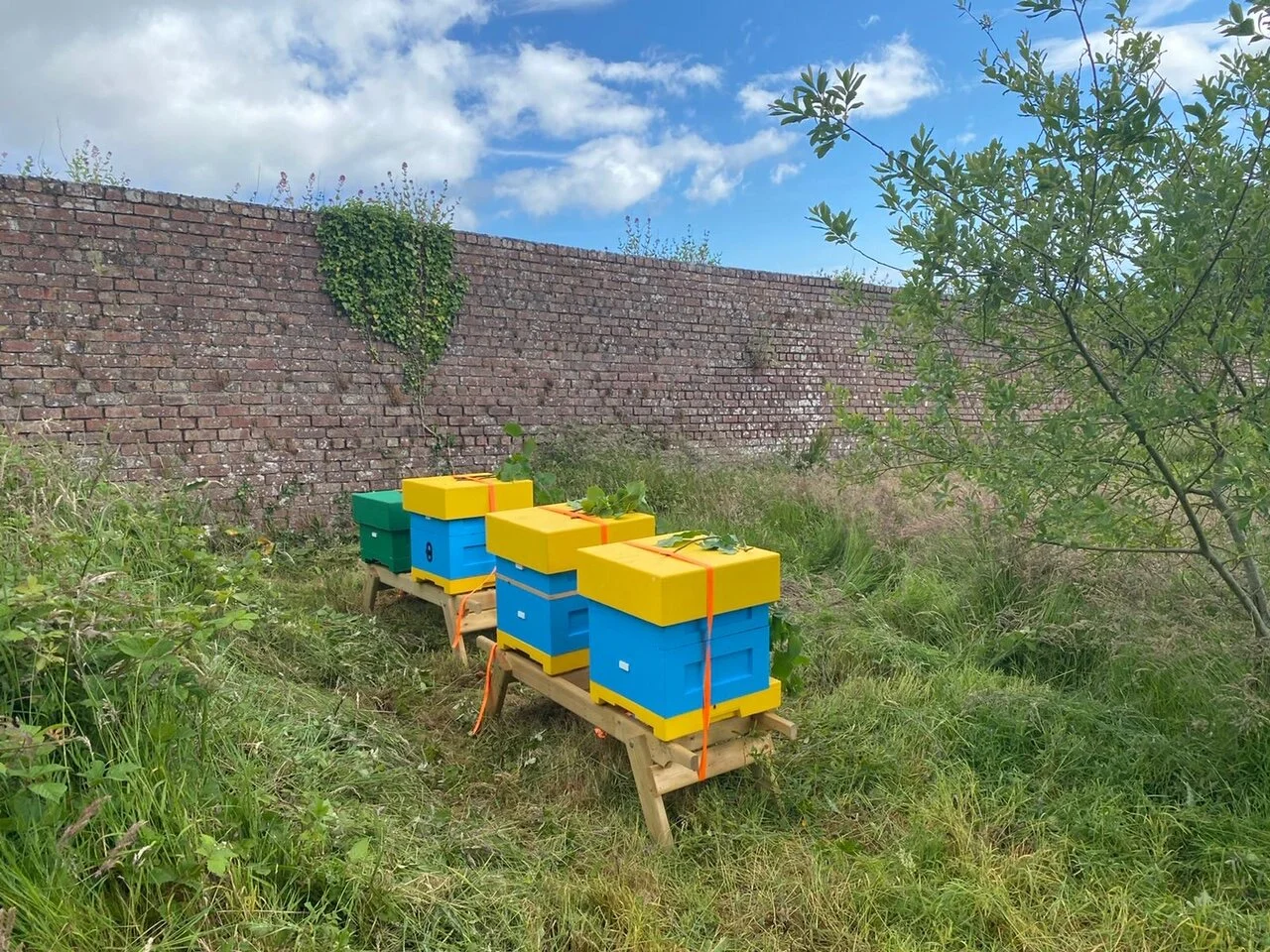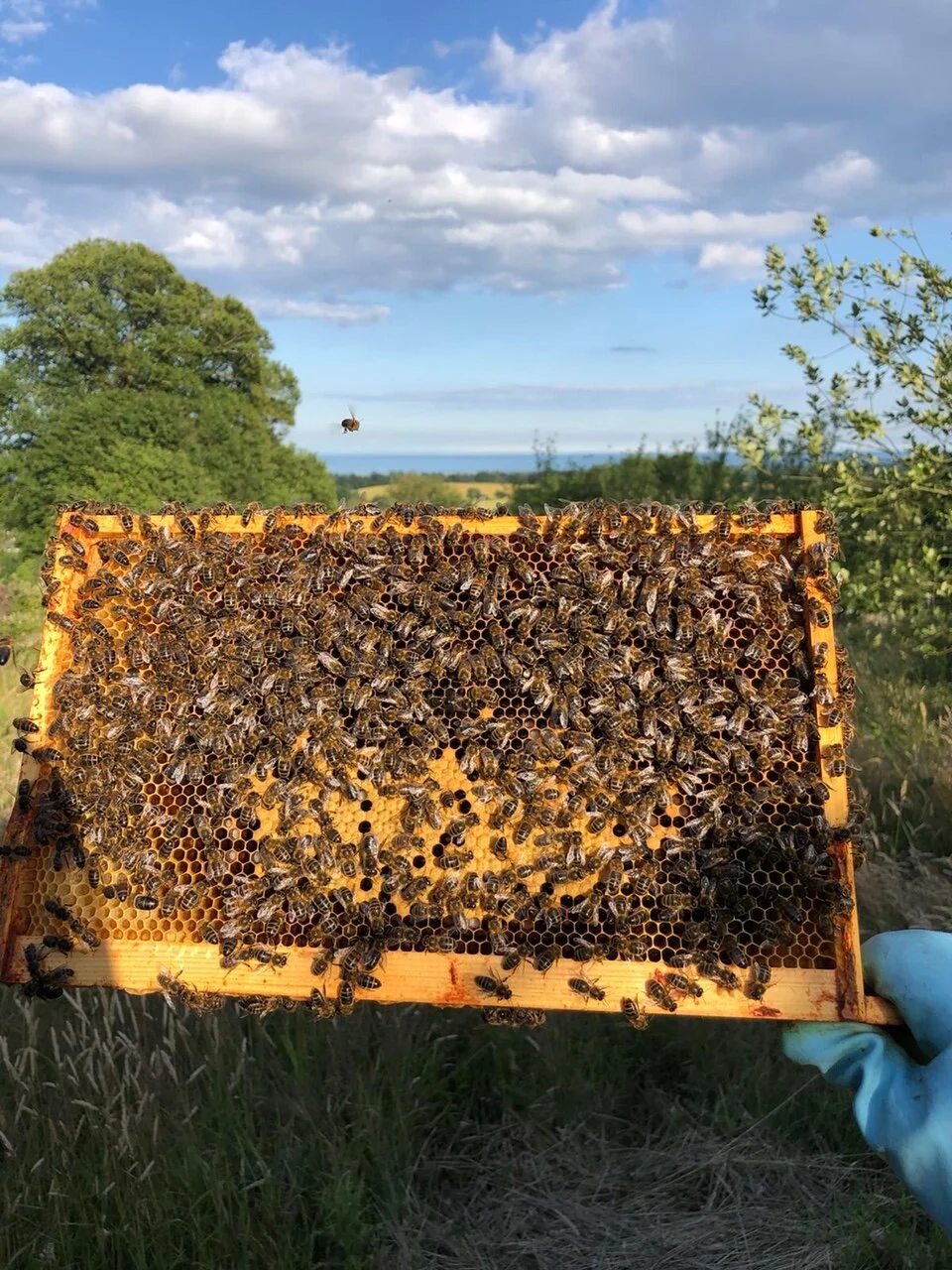Did you know that there is an Irish website built specifically for the rescuing of swarms of bees? Maintained by a beekeeper the site works as a way of helping people who spot swarms and finding bees a safe place to live. As the site says:
Fine weather prompts the honeybee to swarm, to reproduce as a colony and go out into the world. This is a perfectly natural event, swarming bees mean us no harm.
As a precaution, keep children and animals away from the swarm and do not approach yourself as honeybees can get defensive. They are less likely to sting when swarming than at any other time, but they do not lose the ability to sting. Getting stung once can elicit numerous bees to defend by stinging the same target. Avoid the problem, give them space & respect.
Swarms can collect for short periods on nearly anything while scout bees search for a perfect new abode. Once a suitable location has been agreed up (bees are very democratic!), they all move en masse to the new location, the sight of a cloud of bees moving is something else!
Hard to reach swarms can need extending ladders, cherry pickers or even scaffolding to get up to the spots bees can choose to land on, equipment that is not cheap or straightforward to organise, things that would be best avoided where possible. If a swarm rests low down like on a branch, for a beekeeper this is the least risky rescue to attempt. Time however is critical as at any point the swarm could locate its dream location and fly off to it.
It becomes harder to rehome honeybees once they have entered their new home; this can be a chimney, inside your ESB box, behind guttering going into your attic or inside a cavity of your walls. Sometimes bees locate themselves in places where safe removal is impossible, so it is vital a resting swarm be reported as soon as possible to a local beekeeper.
Not all swarms can be rehomed or should be rehomed, safety is always the main priority. After human safety, potential property damage is the second concern, with bees coming third. It might sound callous to put the bees last, but if we don’t prioritize keeping our keepers safe, we won’t have anyone to look after our bees and their survival will become even more dire.
If you are here to report a swarm and find a local beekeeper, you have come to the right place. We have a network of beekeepers all across Ireland waiting to rescue bees.
Website: https://swarms.ie/
Facebook page: https://www.facebook.com/Irish.swarms/









